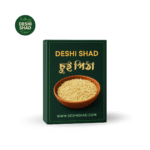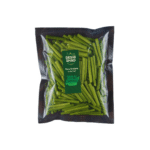Return and Refund Policy
Deshi Shad-এ আপনাকে স্বাগতম!
আমরা আপনার সন্তুষ্টিকে সর্বোচ্চ গুরুত্ব দিই। নিচে আমাদের রিফান্ড, রিটার্ন এবং রিপ্লেসমেন্ট সম্পর্কিত নীতিমালা দেওয়া হলো:
ত্রুটিপূর্ণ পণ্য পেলে কী করবেন?
যদি আপনি ভুল, নষ্ট বা মেয়াদোত্তীর্ণ পণ্য পান, তাহলে আপনি রিটার্ন, রিপ্লেসমেন্ট অথবা আংশিক রিফান্ডের জন্য আবেদন করতে পারবেন।



 যেসব অবস্থায় রিফান্ড/রিটার্ন প্রযোজ্য:
যেসব অবস্থায় রিফান্ড/রিটার্ন প্রযোজ্য:
- প্রাপ্ত পণ্যটি যদি বিবরণ অনুযায়ী না হয়।
- ডেলিভারির সময় পণ্য নষ্ট হয়ে গেলে।
- যদি পণ্যে ম্যানুফ্যাকচারিং ত্রুটি থাকে।
যেসব অবস্থায় রিফান্ড প্রযোজ্য নয়:
- পণ্য ব্যবহারের ফলে নষ্ট হলে।
- প্যাকেট বা অংশবিশেষ হারিয়ে গেলে।
- নির্ধারিত ৩ দিনের মধ্যে যোগাযোগ না করলে।

১. আমাদের হেল্পলাইন বা ইনবক্সে যোগাযোগ করুন – 
২. অর্ডার নম্বর ও ছবি/ভিডিওসহ সমস্যা জানান।
৩. যাচাই-বাছাই শেষে ৭-১০ কর্মদিবসে রিফান্ড প্রসেস করা হবে (যদি প্রযোজ্য হয়)।
 রিপ্লেসমেন্ট চাচ্ছেন?
রিপ্লেসমেন্ট চাচ্ছেন?
রিফান্ডের পরিবর্তে আপনি চাইলে একই পণ্যের রিপ্লেসমেন্ট পেতে পারেন। রিপ্লেসমেন্টের জন্যও উপরোক্ত নিয়মগুলোই প্রযোজ্য।
 যোগাযোগ করুন:
যোগাযোগ করুন:
আপনার কোনো প্রশ্ন থাকলে বা সহায়তা প্রয়োজন হলে আমাদের সাথে যোগাযোগ করুন:


Deshi Shad পরিবারে আপনাকে পেয়ে আমরা গর্বিত, আস্থা ও ভালোবাসায় আমরা দেশি পণ্যের আসল স্বাদ পৌঁছে দিচ্ছি আপনার দোরগোড়ায়।




